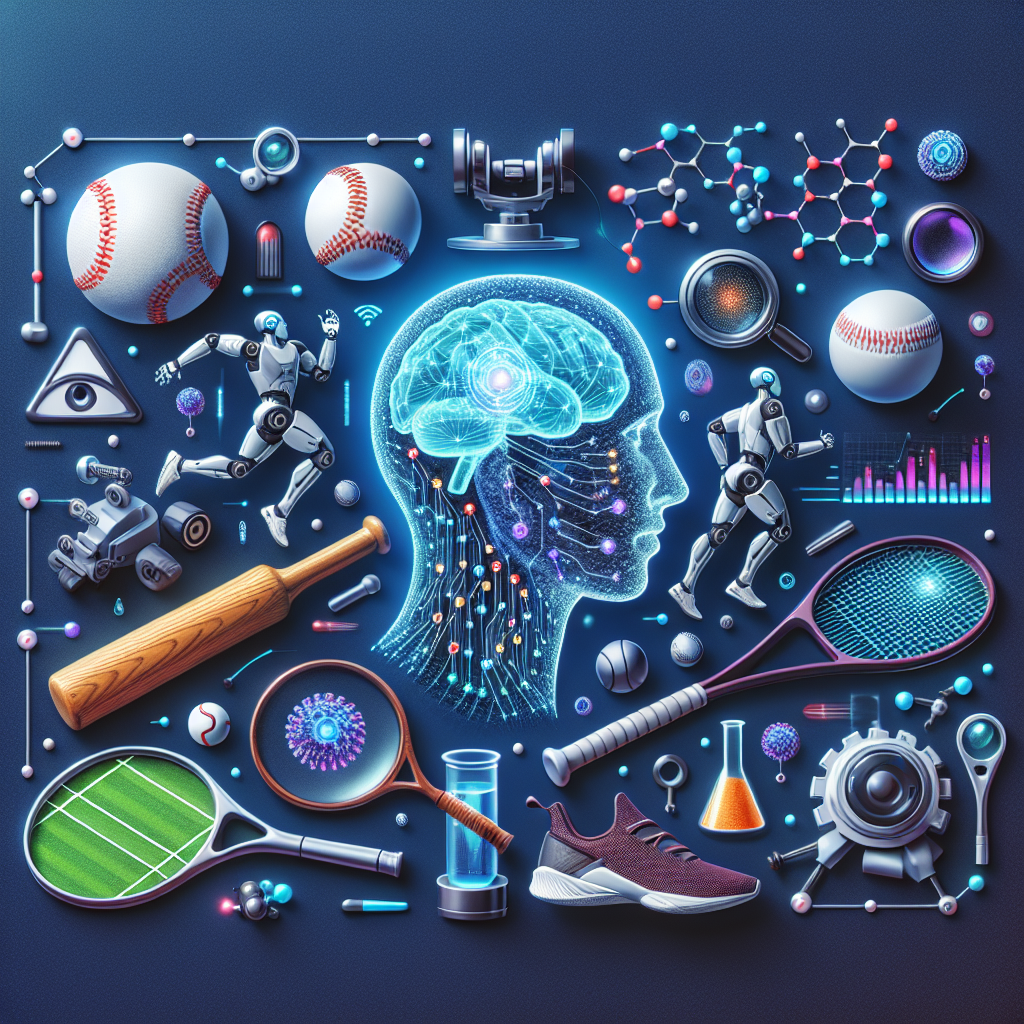Artificial Intelligence (AI) has revolutionized many industries, including sports. One area where AI has made significant advancements is in the detection of sports performance-enhancing technologies. With the rise of technology in sports, athletes and teams are constantly looking for ways to gain a competitive edge. This has led to the development and use of various performance-enhancing technologies that can give athletes an unfair advantage. AI has now become an essential tool in the detection of these technologies, helping to level the playing field and ensure fair competition.
One of the key areas where AI is being used in the detection of sports performance-enhancing technologies is in the analysis of biometric data. Athletes are constantly monitored and tracked using wearable devices that collect data on their heart rate, oxygen levels, and other physiological markers. AI algorithms can analyze this data in real-time to detect any anomalies or abnormalities that may indicate the use of performance-enhancing drugs or technologies. By comparing an athlete’s biometric data to a baseline, AI can flag any suspicious patterns that may require further investigation.
Another way AI is being used in the detection of sports performance-enhancing technologies is through the analysis of video footage. With the advancement of computer vision technology, AI algorithms can analyze video footage of athletes in action to detect any signs of doping or other illegal practices. For example, AI can analyze an athlete’s movements, body language, and physical appearance to identify any irregularities that may indicate the use of performance-enhancing drugs. This technology can be particularly useful in sports like weightlifting, where the use of steroids or other drugs can have a significant impact on an athlete’s performance.
In addition to analyzing biometric data and video footage, AI is also being used in the detection of performance-enhancing technologies in equipment. For example, AI algorithms can analyze the design and construction of equipment used by athletes to identify any modifications or enhancements that may give them an unfair advantage. This can include things like the use of illegal materials, hidden motors, or other technologies that can boost an athlete’s performance beyond natural capabilities. By using AI to scan equipment for any irregularities, sports authorities can ensure that all athletes are competing on a level playing field.
Overall, the use of AI in the detection of sports performance-enhancing technologies is essential in preserving the integrity of sports and ensuring fair competition. By leveraging the power of AI algorithms to analyze biometric data, video footage, and equipment, sports authorities can effectively identify and penalize athletes who may be cheating. This not only protects the rights of clean athletes but also upholds the values of sportsmanship and fair play.
FAQs:
1. How accurate is AI in detecting sports performance-enhancing technologies?
AI algorithms have shown to be highly accurate in detecting anomalies or irregularities in biometric data, video footage, and equipment that may indicate the use of performance-enhancing technologies. While no system is perfect, AI can significantly improve the efficiency and effectiveness of detecting cheating in sports.
2. Are there any limitations to AI in the detection of sports performance-enhancing technologies?
One potential limitation of AI in this context is the need for high-quality data. AI algorithms rely on accurate and comprehensive data to make informed decisions, so any gaps or inaccuracies in the data can affect the algorithm’s performance. Additionally, AI algorithms may struggle with detecting more sophisticated or hidden technologies that are designed to evade detection.
3. How can athletes and teams ensure they are not wrongly accused of using performance-enhancing technologies?
Athletes and teams can protect themselves from false accusations by being transparent and cooperative with sports authorities. This includes providing accurate biometric data, allowing access to video footage, and ensuring that all equipment complies with regulations. By following the rules and regulations set forth by sports governing bodies, athletes can avoid any suspicions of cheating.
4. What role does ethics play in the use of AI in the detection of sports performance-enhancing technologies?
Ethical considerations are paramount in the use of AI in sports, particularly when it comes to privacy and data security. Athletes have a right to privacy and should be informed about how their data is being collected, stored, and analyzed. Additionally, sports authorities must ensure that AI algorithms are used responsibly and ethically to prevent any unjust accusations or breaches of privacy.
In conclusion, AI has become an indispensable tool in the detection of sports performance-enhancing technologies. By leveraging the power of AI algorithms to analyze biometric data, video footage, and equipment, sports authorities can effectively identify and penalize athletes who may be cheating. This not only protects the integrity of sports but also upholds the values of fair play and sportsmanship. As technology continues to advance, AI will play an increasingly important role in ensuring that all athletes compete on a level playing field.

